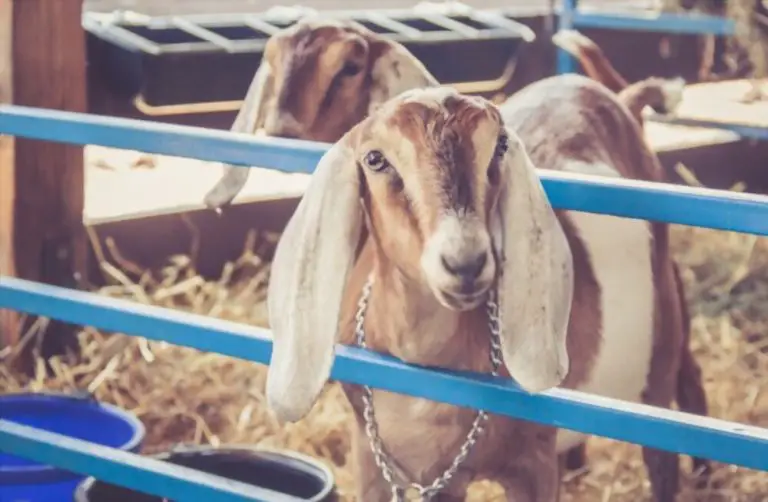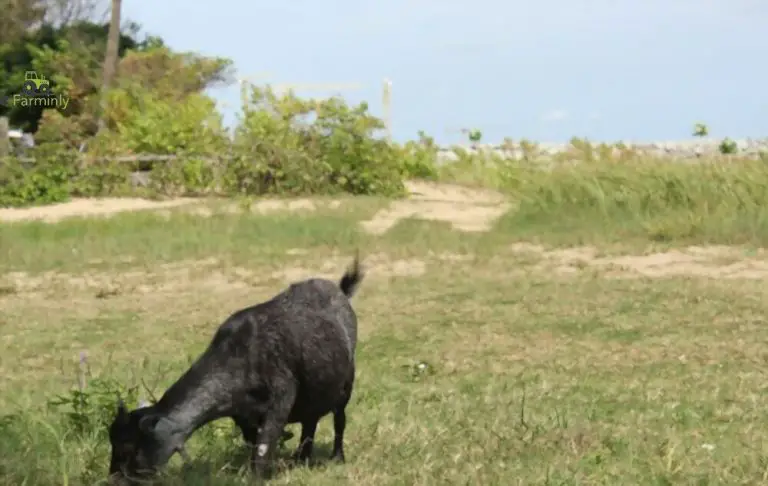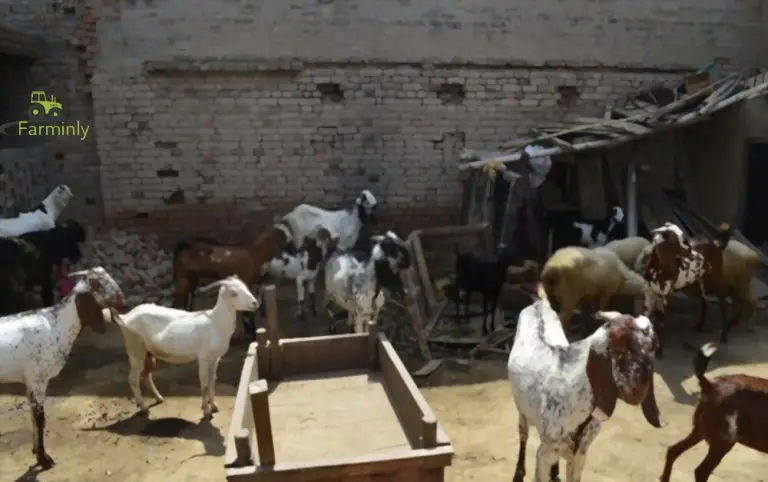Goats are typically friendly, docile creatures, so it may be surprising to hear that goats can exhibit a kind of aggression – biting. Do goats bite? While they are not known to be aggressive, goats do bite from time to time.
I know you’re probably skeptical, but It is vital for you, as a goat owner of all kinds, from baby goats to mature ones, to understand how to prevent bites and handle a goat when one does bite. Keep reading to find out!
Signs of an Aggressive Goat Behavior
The first step in preventing a goat from biting is to recognize when a goat is likely to lash out with a bite. Goats can become startled or irritated when they perceive a sudden movement or sound, if someone invades their territory, or if they are fearful of a situation.
From unpredictable goat behavior to aggressive posturing, brushing up on the signs can help you better manage your herd and create a safe space for everyone.

1. Unpredictable Goat Behavior
The most obvious sign that your goat might bite is when their behavior suddenly becomes unpredictable. If you’ve been handling your goats regularly, it can be easy to spot sudden changes in their energy and personality.
Please pay attention to the amount of eye contact they make with you. If they have an extreme reaction like lunging or recoiling, this is a telltale sign that they irk your goat.
2. Change in vocalizations if applicable.
If the goat is particularly vocal, vocal changes might indicate upcoming hostility. You may hear the goat bleat more often or even at different pitches. When a goat releases high-pitched shrieks or bleats, it might be distressed and bite or even attack.
3. Flicking Tongue And Bared Teeth
A goat preparing to bite may start flicking its tongue and baring its teeth. Again, this should be reasonably easy to spot if you’re a regular handler of your goats. In addition, could you pay attention to their body positioning?
If a goat stands at a 45-degree angle, with its ears positioned back, it could mean it is getting ready to attack.
4. Pacing/hoof thumping
If your goats begin to pace around a small radius rapidly, that could indicate that they’re agitated and may even become violent.
Similarly, goats will often thump their hooves when they’re displaying aggression. If your goat engages in any of these behaviors, it’s best to step back and minimize the likelihood of being bitten.
5. Avoidance of Interaction
Goats are naturally curious and affectionate animals, so if they start avoiding you or purposefully hiding from you, it could signify feeling threatened.
The goat could be avoiding you for various reasons, but generally speaking, it’s best to give them some space if your goat is uncomfortable. When interacting with them, it is essential to be gentle and aware of goats’ needs and recognize signs that a goat may lash out and start to bite.
It is also important to remember that while a goat’s bite does not have the same power as other animals’ bites, it can still be painful. With proper understanding and prevention, you can avoid goat bites.
Do Goats Use Their Teeth to Bite?
Goats don’t have the most substantial jaw strength and aren’t known to have a particularly aggressive bite. However, they use their mouths and teeth to explore the world.
That means they can easily nibble on your clothing, pasture grasses, or other items that they find interesting.
While the nibbling goat teeth are unlikely to break your skin, they can cause discomfort or pain if pressed hard enough. A goat’s nibble won’t feel like a sharp bite from a dog, but it can still hurt, especially if you’re unprepared.
How to prevent Goats from biting you
The best way to prevent goat bites is to avoid contact with a goat in the first place. Teach children and other visitors to your farm to keep their distance from the goat’s pen and to move slowly and cautiously when feeding or interacting with the animals.
Additionally, If a goat tries to bite you, it’s essential to act quickly and firmly:
- Make sure you stay safe by standing up straight.
- Get defensive by raising your arm or stepping away from the goat.
- Firmly but calmly correct the goat’s behavior with a loud “NO!” and push the animal away from you.
Why Goats Do Bite?

As aforementioned, goats are typically friendly, docile creatures, so it may be surprising to hear that goats can exhibit a kind of biting aggression. But why do goats bite?
1. Feral Or Untrained Goats
Goats can be similar to dogs in that if they are not trained, socialized, and handled regularly, they can be more prone to aggressive behaviors such as biting.
You can see this behavior in feral or untrained goats, who are uncomfortable managing people and may feel threatened by human contact, leading them to bite in self-defense.
2. Feeling The Need To Dominant
Some goats have a sense of dominance and can bite to show that dominance over you or other animals. It is especially true of bucks, though non-castrated males, who naturally have higher testosterone levels, may also be more likely to exhibit the behavior.
3. Protecting Territory
Goats are very personal regarding where their feeling of “territory” lies. They can become overly defensive, sometimes excessively aggressive, regarding people and animals they perceive as invading their space.
4. Protecting Others
Mother goats, or nannies, are very protective of their young and can become aggressive if they feel these young are in danger. Nannies can feel threatened by human contact and protect their young by biting.
5. Keeping Out Of Reach
Goats can also bite to keep humans or other animals away from something they value, such as food or another animal. If a goat feels you are trying to take something from them, it can resort to biting as a defense.
6. Pain Or Injury
Sometimes goats may bite if they feel pain or discomfort or are injured. If a goat is feeling ill and exhibiting unusual behaviors, it is best to separate them from the rest of the herd and contact a veterinarian.
7. Lack Of Attention
Goats, like all animals, need attention and affection. If goats feel they are not receiving enough attention, they may resort to misbehavior, such as stamping and biting, to get attention.
8. Preventing Unwanted Attention
Goats can also resort to nipping and biting as a means of controlling the amount of attention they get. If they feel they are getting too much attention, they may squeeze or bite to send the message that they have had enough.
Other common reasons why a goat may try to bite include the following:
- if they feel threatened
- if you startle them
- if you don’t give them enough space
- if you move too quickly around them
Final Thoughts
In conclusion, goats bite from time to time for various reasons. But this can occur if they feel threatened or disturbed by a sudden movement or sound.
From feeling uncomfortable or threatened to protect their young or territory, now that you know this, understanding the motivation for your goat’s biting behavior is crucial in reducing or eliminating it.







